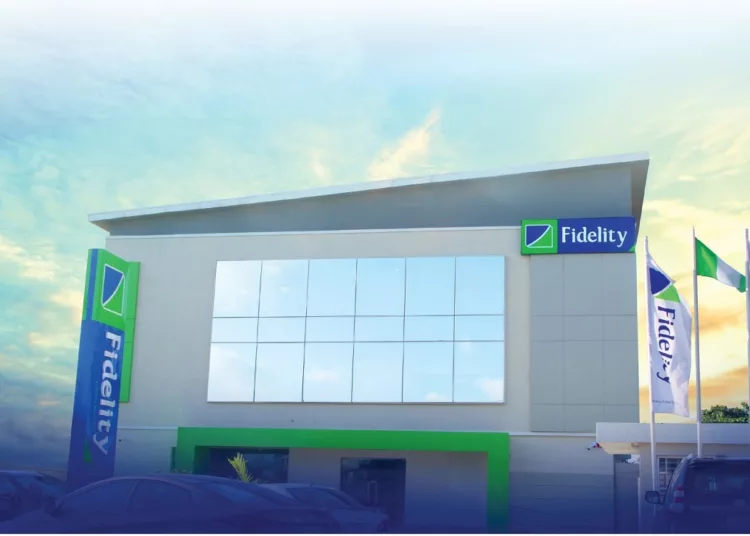After a period of intense public scrutiny over a contentious ₦225 billion judgment debt and allegations of insider trading, Fidelity Bank has re-emerged with renewed momentum, boosted by a recent upgrade from global credit rating agency, Fitch Ratings.
Fitch affirmed the bank’s Long-Term Issuer Default Rating (IDR) at ‘B’ and elevated its National Long-Term Rating to ‘A+(nga)’ from ‘A(nga)’. The rating agency cited strengthened capital buffers and improved profitability as key drivers of the upgrade, signalling positive investor sentiment and renewed confidence in the bank’s trajectory.
Defying Headwinds
Fidelity Bank recently addressed speculation surrounding its financial health, following a Supreme Court ruling involving legacy debt obligations to Messrs SAGECOM Concepts Limited. The bank firmly reassured the public of its stability, clarifying that it faces no threat of bankruptcy or insolvency.
In a statement issued by the Divisional Head of Brand & Communications, Dr. Meksley Nwagboh, the bank dismissed the rumors, asserting its robust financial position despite ongoing legal matters.
Strategic Capitalisation and Market Confidence
As Nigerian banks prepare for the 2026 recapitalisation deadline, Fidelity Bank is positioning itself ahead of the curve. While several competitors are still adjusting their strategies, Fidelity has successfully raised capital through a public offer and rights issue.
Fitch commended the bank’s strengthened balance sheet, highlighting a 93% composition of low-cost deposits—one of the highest in the sector. The bank’s Fitch Core Capital (FCC) ratio climbed to 29.9% by the end of 2024, far exceeding regulatory thresholds. With further capital raising plans in motion, Fidelity is well on track to meet the Central Bank of Nigeria’s ₦500 billion minimum capital requirement for international banks.
Executive Leadership and Shareholder Commitment
Fidelity Bank’s remarkable resilience has been credited to its focused leadership. Managing Director/CEO, Dr. Nneka Onyeali-Ikpe, has reaffirmed the bank’s commitment to delivering sustainable value to stakeholders. Her recent share acquisition—rising from 94.6 million units to 112.6 million units—demonstrates a vote of confidence in the bank’s long-term vision.
“Despite macroeconomic challenges, we’ve continued to uphold strong asset quality, solid profitability, and ample liquidity,” said Onyeali-Ikpe. “This Fitch rating validates our disciplined strategy and unwavering focus on customer-centric growth.”
Recognition and Performance Milestones
Fidelity Bank’s momentum has been further underscored by accolades, including the Most Improved Commercial Bank of the Year award at the Nairametrics Capital Market Choice Awards in May 2025. The award acknowledges the bank’s contribution to corporate governance, capital market innovation, and financial resilience.
The bank’s financial results are equally impressive. For the 2024 fiscal year, it reported a 210% surge in Profit Before Tax (PBT), reaching ₦385.2 billion—the highest year-on-year growth recorded in the Nigerian banking sector. This trend has continued into Q1 2025, with a 167.8% increase in PBT to ₦105.8 billion and gross earnings rising 64.2% to ₦315.4 billion.
Total deposits climbed to ₦6.6 trillion, supported by a 21.4% boost in foreign currency deposits. The bank’s recapitalisation efforts also drew overwhelming investor interest, with oversubscription rates of 237.9% and 137.7% for its public offer and rights issue, respectively.
Driving SME Growth and National Development
Beyond financial metrics, Fidelity Bank remains a pivotal force in Nigeria’s SME ecosystem. The recent launch of its SME Hub, combined with a strategic partnership with the Small and Medium Enterprises Development Agency of Nigeria (SMEDAN), underscores its commitment to empowering micro, small, and medium enterprises (MSMEs).
The partnership will facilitate access to friendly interest rate loans for MSMEs, helping to drive capacity-building, entrepreneurship, and employment generation across Nigeria.
According to Dr. Onyeali-Ikpe, the bank has been a steadfast supporter of small businesses for over two decades. “Our collaboration with SMEDAN is more than a formal agreement—it is a testament to our mission of unlocking the potential of Nigeria’s economic backbone,” she said.
Outlook
Fidelity Bank’s latest achievements point to a financial institution that is not only weathering storms but charting a bold course forward. With a revitalised capital base, sustained profitability, and a clear strategic vision, the bank appears well-positioned to scale new heights both locally and globally.

